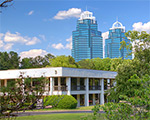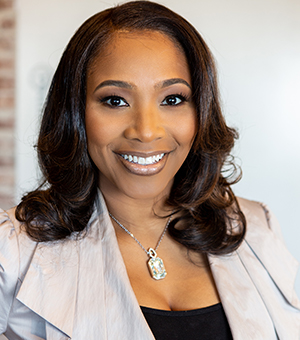In simplest terms, premises liability is responsibility for injuries that occur on property you own or control. Some of the most common premises liability claims involve slips, trips and falls on someone else’s property. For example, a store owner may be liable for injuries caused when a customer slipped and fell on a floor that was wet from recent mopping. Similarly, a homeowner may be responsible for injuries caused when a guest trips on a broken sidewalk or porch step.
You won’t hear about most of these cases, but occasionally a premises liability case involving serious injuries or complex legal issues makes the news, like the $1 million January settlement between the Metro Cafe at Peachtree Center and a woman who fell on the stairs at the restaurant.
But, premises liability is more complicated than it sounds. Property owners aren’t necessarily responsible for every injury that takes place on their property. Rather, they are generally liable only if they have failed in a duty to the injured person, and that failure caused the injury. And, the standard for liability is different depending on the reason the injured person was on the property.
Types of Premises Liability
In Georgia, most premises liability cases involve defects or poor maintenance issues, like the examples above. Some additional examples of this type of injury include:
- Tripping on a broken or uneven stairway
- Falling in a poorly-lighted stairwell
- Falling due to a loose stair rail or balcony railing
- Catching a toe or heel on the edge of a carpet that isn’t properly tacked down
- Objects stacked carelessly in a store falling on someone
The property owner’s responsibility to protect against this type of injury depends on whether the injured person was invited onto the premises, is allowed on the premises, or was trespassing at the time of the injury. Special rules may apply when the injured person is a child.
The other key type of premises liability in Georgia involves a property owner’s liability for actions of a third party. This most commonly arises when someone is the victim of a crime committed on the premises, such as robbery, battery, or rape. Again, property owners aren’t automatically responsible simply because the incident occurred on the property. However, a property owner may be liable if the crime was reasonably foreseeable–usually based on prior similar criminal activity in the area–and fails to maintain the property in a reasonably safe condition.
Some examples might include failing to replace burned out security lights in hallways or parking lots, leaving security doors non-functional or functioning unreliably, or providing inadequate doors, windows, locks and other measures intended to secure the premises.
Proving Liability in Georgia Premises Liability Cases
To establish a premises liability claim, the injured party must prove that:
- The property owner had a responsibility to him
- The property owner failed to fulfill that responsibility, and
- The failure to fulfill that responsibility caused or contributed to the injury
The first piece is complex, in that property owners in Georgia have differing degrees of responsibility to different people. These fall into three main categories:
- Invitees, who are explicitly or implicitly invited onto the property. Invitees include people like customers in a store, employees hired to work on the premises, and attendees at a concert or similar event. The property owner has a greater responsibility to invitees than to any other group: a duty of ordinary care to maintain the premises and approaches in safe condition.
- Licensees, who are permitted on the property for their own purposes, such as a neighbor who drops by, a salesperson, or a meter reader. Property owners are generally only responsible to licensees if they recklessly or wantonly expose the licensee to hidden dangers.
- Trespassers, who have no right to be on the property. The owner’s responsibility to a trespasser is merely to avoid willfully or wantonly injuring him.
Even this categorization has additional layers of complexity. For instance, “recklessly and wantonly exposed” has been defined to include specific elements, and the bar isn’t quite as high as the language suggests. And, a child trespasser may be treated as a licensee under the law.
In short, it can be very difficult for an injured person to determine whether or not the property owner or occupant may be liable for injuries. And, proving legal responsibility in a premises liability case can be complicated and often requires the assistance of expert witnesses. If you’ve been injured on someone else’s property, your best next step is to talk with an experienced Atlanta premises liability attorney.
Atlanta attorney ReShea Balams fights for maximum compensation for people who have been injured through someone else’s negligence. The Balams Firm offers free, no-obligation consultations so injury victims can gather the information they need to make good decisions in difficult times. You can schedule yours right now by calling 855-352-2727 or filling out the contact form on this page.










